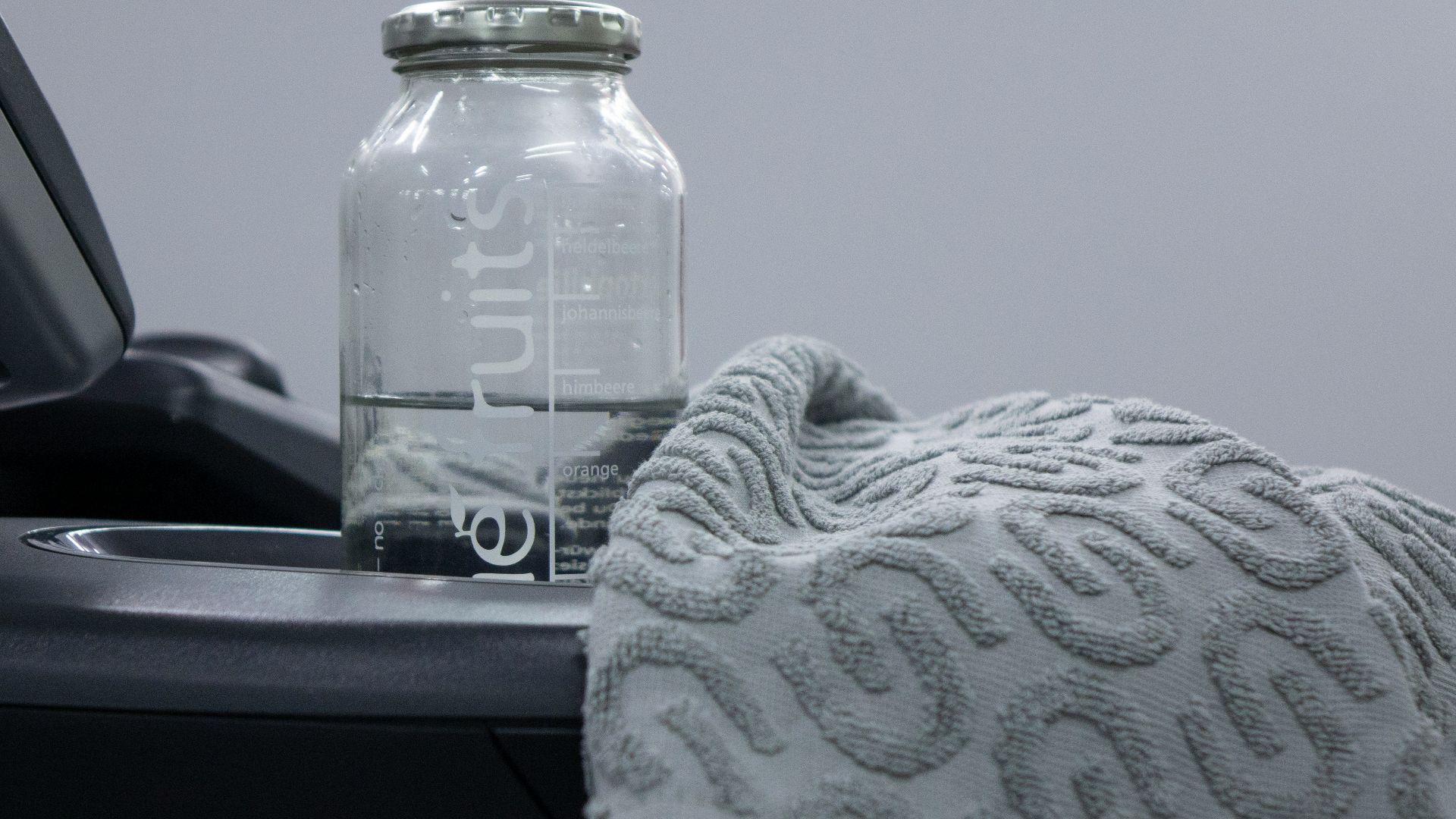Oral Health Starts With You
There’s more to oral health than brushing twice a day or chasing a cleaner smile. It plays a deeper role in your overall well-being and influences far more than just your teeth and gums. Your mouth actively supports essential systems throughout the body, serving as a gateway to long-term health. Before looking at how to care for it better, let’s first explore why it matters more than you think.
1. Gum Disease Can Fuel Heart Problems
Heart health starts closer to your toothbrush than you’d expect. People with any gum disease are twice as likely to develop heart problems. This is because bacteria slip into the bloodstream and aggravate the arteries. So, keeping up with brushing can make a real difference over the years.
 DRosenbach (talk). on Wikimedia
DRosenbach (talk). on Wikimedia
2. Bad Teeth Can Impact Your Career
A strong smile makes a lasting impression. Employers often link good oral hygiene to discipline, which can shape how you’re seen professionally. In fact, nearly 28% of young adults say their teeth have held them back at work, as reported by the ADA Health Policy Institute.
 mohamed abdelghaffar on Pexels
mohamed abdelghaffar on Pexels
3. Poor Oral Health May Affect Your Memory
Your teeth help keep the brain active. When you lose them, you lose the chewing motion that stimulates memory-related brain areas. Ongoing gum issues also add to brain stress by encouraging amyloid buildup—the same stuff tied to Alzheimer’s and long-term memory loss.
4. Bad Breath May Indicate Serious Health Problems
Chronic bad breath (halitosis) may sometimes indicate a serious issue. Conditions like diabetes, kidney disease, or liver failure tend to leave chemical traces in the breath. These chemical markers are so strong that trained dogs are now used to detect them early in some cases.
5. Dental Health Influences Diabetes Control
Inflamed gums can also throw off your body's ability to handle insulin. That's why gum disease makes it tough to manage blood sugar. A Cochrane Review even found that treating gum issues helped improve sugar levels. So, better oral health means more control over diabetes and fewer complications.
 U.S. Navy photo by Culinary Specialist 2nd Class Michelle Pereira on Wikimedia
U.S. Navy photo by Culinary Specialist 2nd Class Michelle Pereira on Wikimedia
6. Tooth Loss Hints At Your Lifespan
Researchers have found that losing five or more teeth before the age of 65 is associated with a shorter life expectancy. This is because missing teeth can reflect broader systemic health issues, such as metabolic disorders, immune dysfunction, or chronic inflammatory conditions.
7. Pregnancy Complications May Begin In The Mouth
Pregnancy shifts hormone levels, often making gums more sensitive and swollen. According to the CDC, around 75% of pregnant women develop gingivitis, a mild gum disease that causes swelling and bleeding. This can raise the risk of early labor due to increased inflammation in the uterus.
8. Dental Neglect Is Tied To Kidney Disease
Chronic kidney disease shows up more often in people with gum disease. Oral bacteria can actually reach the kidneys and interfere with how they function. When your gums stay inflamed, the kidneys stay on high alert—longer than they should.
9. Mouth Bacteria Can Worsen Cancer Outcomes
There’s also a connection between gum disease and increased risks of pancreatic, oral, and esophageal cancers. One of the bacteria involved, P. gingivalis, has been shown to increase inflammation, creating an environment where tumors may grow more easily.
10. Oral Infections Can Lead To Respiratory Illnesses
The bacteria in your gums don’t stop at your mouth. The Journal of Periodontology links periodontal disease to conditions like COPD and pneumonia. Once inhaled, these bacteria may inflame your lungs and raise the risk of flare-ups that take longer to heal.
Now that you know how deeply oral health affects your entire body, here’s how to stay ahead of it every single day.
1. Switch To An Electric Toothbrush
In comparison to regular toothbrushes, electric ones remove 21% more plaque than manual ones. The built-in pressure sensors help avoid gum damage by alerting you in real time. Additionally, the added real-time feedback makes your routine efficient, especially for kids and seniors.
2. Drink Fluoridated Water
Fluoride in tap water reduces cavities by 25%, according to the CDC. Bottled water lacks that benefit. Over time, drinking from the tap gives your enamel a quiet layer of protection your teeth can rely on between brushings.
3. Eat Tooth-Friendly Snacks
Cheese neutralizes acid and supports enamel repair—the casein in cheese acts like a natural enamel booster. Nuts trigger saliva, which helps clear food debris. These small food swaps strengthen teeth without changing your entire diet.
4. Use Xylitol Gum
In multiple clinical trials, kids who used xylitol gum had 70% fewer cavities, as the sweetener cuts bacteria growth without feeding them. Xylitol reduces cavity-causing bacteria by up to 60%, which makes it a powerful tool for daily prevention.
 Fernanda da Silva Lopes on Pexels
Fernanda da Silva Lopes on Pexels
5. Regularly Replace Your Toothbrush
Toothbrush bristles wear out and lose effectiveness faster than most people realize. A fresh brush keeps your cleaning routine effective and dependable, while worn bristles miss plaque and lingering bacteria. The ADA recommends replacing them every three months.
6. Scrape Your Tongue
Most oral bacteria live on the tongue, and Ayurvedic practices have used scraping as a detox tool for centuries. Scraping the tongue does more than freshen breath—it clears away 75% more odor-causing bacteria than brushing alone.
 Dr Tung's Tongue Scraper by Teeth Stars
Dr Tung's Tongue Scraper by Teeth Stars
7. Use A Safe Mouthwash
Switching to an alcohol-free mouthwash helps protect your gums from dryness and irritation. Some rinses are designed to significantly reduce plaque and gingivitis, while also targeting harmful bacteria, not the good ones. It’s a gentler way to keep things balanced.
8. Visit Your Dentist Often
Professional cleanings reach where your brush can’t. The ADA recommends visiting your dentist twice a year for tartar removal and early detection. Most issues go unnoticed until your dentist detects them during a routine checkup. Many insurance plans already cover them in the early stages.
9. Go Easy On Acidic Drinks
Sodas, citrus juices, and energy drinks all sit below pH 5.5, and that’s bad news for your enamel. Sipping through a straw can help keep acid away from your teeth, and a quick water rinse after drinking helps wash away leftover residue.
10. Guard Your Teeth While You Sleep
Grinding your teeth at night doesn’t always come with obvious signs, but over time, it can wear down enamel or even cause cracks. A night guard cushions the pressure, and for many people, it also helps ease jaw tension and morning headaches.























